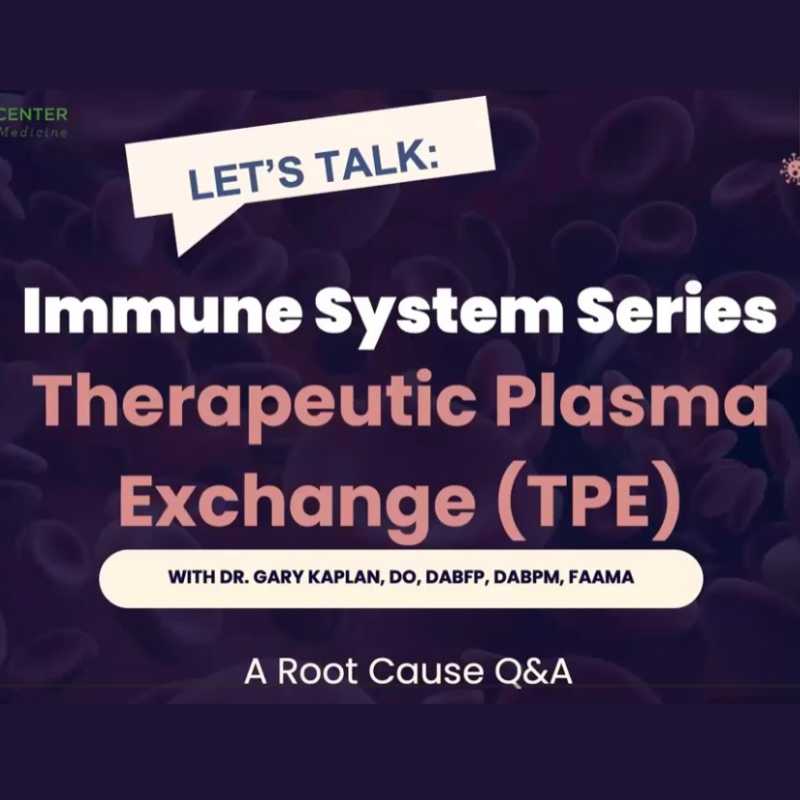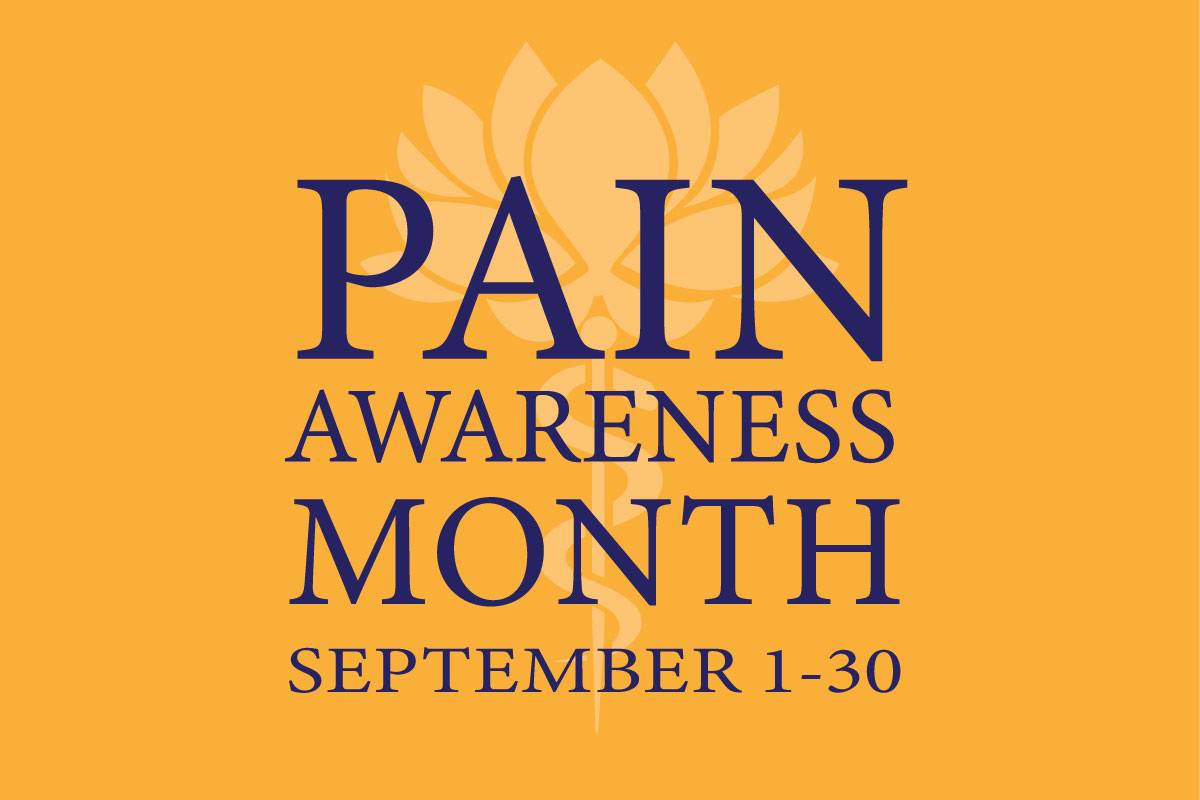
5 Ways We Can Keep Your Immune System Strong
December 10, 2025/by Kaplan Center
Want to Take Your Workout to the Next Level Next Year? These Tips Can Help
December 8, 2025/by Kaplan Center
Dr. Kaplan’s Dos and Don’ts of the Holiday Season
December 3, 2025/by Kaplan Center
Let’s Talk Webinar – A Root Cause Q&A
December 2, 2025/by Kaplan Center
Navigating Holiday Meals with Gut Issues: Simple Tips for a Comfortable Season
December 1, 2025/by Chardonée Donald, MS, CBHS, CHN, CNS, LDN
Craniosacral Therapy for TMJ | Say Goodbye to the Daily Grind
November 19, 2025/by Patricia Alomar, M.S., P.T.
From Compassionate Care to Personal Healing: A Letter to My Patients
November 18, 2025/by Kaplan Center
8 Steps to a Healthier Gut—and a Longer, Healthier Life
November 18, 2025/by Kaplan Center
Mid-Life Irritability & Fatigue Improved by Hormonal Balancing
November 13, 2025/by Lisa Lilienfield, MD
From Challenges to Change: Dr. Kaplan on Healthcare’s Biggest Challenges
October 29, 2025/by Kaplan Center
Overlooked Dangers of Mold Exposure and How to Stay Safe – Dr. Kaplan Talks to WUSA9
October 27, 2025/by Kaplan Center
Let’s ‘Fall’ Into Wellness: A Nutritionist-Approved Immune-Boosting Recipe for Cold and Flu Season
October 13, 2025/by Chardonée Donald, MS, CBHS, CHN, CNS, LDN
PANS/PANDAS – When Sudden Symptoms Signal Something More
October 9, 2025/by Kaplan Center
Beating Burnout, A Nutritionist’s Perspective
October 1, 2025/by Chardonée Donald, MS, CBHS, CHN, CNS, LDN
3 Things That Can Happen After Stopping GLP-1s
September 11, 2025/by Chardonée Donald, MS, CBHS, CHN, CNS, LDN
What Families Need to Know About COVID and Flu Season
September 3, 2025/by Kaplan Center
September is Pain Awareness Month
September 1, 2025/by Kaplan Center
Dr. Kaplan Spoke to Northern Virginia Magazine About COVID, Flu, and Immunity — Here’s What You Should Know
August 14, 2025/by Kaplan Center
“Why Do I Feel Like Crap?”: The Overlap Between Long COVID and Perimenopause
July 30, 2025/by Kaplan Center
Why People Are Turning to EMDR (and Why You Might Want to Too)
July 23, 2025/by Kaplan CenterAre you looking to improve your overall wellness?
Personalized care you can trust.
Our integrative, non-surgical treatment approach is highly successful in maintaining wellness and also treating chronic pain and illness. For more than 30 years, we have delivered superior, cutting-edge health care in the Washington, DC area.
QuickLinks
Contact Information
Tel: 703-532-4892
Fax: 703-237-3105
6829 Elm Street, Suite 300
McLean, Virginia 22101
Map It
Hours of Operation
Mon – Thu : 8 am – 5 pm, ET
Fri : 8 am – 12 pm, ET
Yoga Rooms Offer Respite at Busy Airports
/in Lifestyle/by Kaplan CenterAttention yogis! You may think that the airport is the last place you could find a moment of tranquility, but in an effort to make airline traveling a less stressful experience for its customers, a handful of airports are trying to change that perception.
In 2012, San Francisco International Airport made history by being the first to create a dedicated space for the practice of yoga and self-reflection. Since then, a growing number of other airports have caught on to this trend, and we really hope to see it continue!
Air travel today has become more stressful than ever before. 9-11 changed everything, making long lines and multiple security checkpoints the new norm. If you add in the exhaustive media coverage of each air tragedy, canceled flights, long layovers, and the constant and inescapable background noise at every airport, you may find yourself in the midst of a perfect storm of stress and anxiety which can take a toll on your mental and physical well-being. With minimal overhead, airport yoga rooms offer an opportunity for passengers to focus on their health & well-being, a welcome change from the customary options of restaurants, bars, and shopping venues that bombard travelers as soon as they walk through the doors.
3 Great Reasons to Visit an Airport Yoga Room:
Here is a list of airports that currently have a yoga and/or meditation room available to their ticketed passengers:
Burlington International Airport
Chicago’s O’Hare International Airport
Dallas-Fort Worth International Airport
Helsinki Airport
San Francisco International Airport
Raleigh-Durham International Airport
Heathrow Airport
Chicago Midway International Airport
San Diego International Airport
How Yoga Can Help With Your Chronic Pain
/in Lifestyle/by Kaplan CenterBy Julia Westbrook
Improve your brain to stop the pain.
Protect your body from pain by beefing up your mind with yoga, according to research from the American Pain Society. The research found that the areas of the brain that are torn down by chronic pain are built up by yoga, likely due to the meditative aspects of the practice.
“Practicing yoga has the opposite effect on the brain as does chronic pain,” said M. Catherine Bushnell, PhD, scientific director of the Division of Intramural Research, National Center for Complementary and Integrative Health, NIH.
Chronic pain has shown to cause brain damage in gray matter, which can lead to memory issues, emotional issues, and decreased cognitive functioning. Chronic pain is also a symptom of inflammation in the brain. “The inflammation causes reversible damage to the brain with a loss of gray matter and disruption in the normal functioning of the brain,” explains Gary Kaplan, DO, author of Total Recovery.
So, the logical solution: Fix the inflammation, fix your brain, and stop the pain.
Dr. Kaplan recommends meditation and yoga as effective ways to combat inflammation in his own practice. “If we could bottle the beneficial impacts yoga and meditation have on the body it would be the best-selling medication around,” he says.
Improved Coping With Inflammation
Dr. Kaplan says this meditative practice may address the root brain inflammation that causes pain. “We do not know the mechanism via which meditation and yoga protect the brain,” he says, “but since we know that both practices result in repair of the brain and growth of new gray matter, it is reasonable that both practices reduce inflammation. You cannot have brain tissue repair unless you shut down the inflammatory process.”
Reduced Suffering
While yoga doesn’t make people less sensitive to pain, yoga and meditation can help boost their resilience when it comes to dealing with their pain. While these practices don’t decrease your ability to feel pain, Dr. Kaplan says that previous research has found that they do improve the time of reactivity to pain and the emotional consequences of experiencing pain. “Both practices unquestionably can reduce the level of chronic pain and again reduce the emotional import of the pain, i.e. the suffering component,” he explains. “They allow you to ‘distance’ yourself from the pain and see it more objectively.”
Boosted Resiliency
Your ability to deal isn’t just a matter of will—it might be a matter of your brain, too. “There are several studies that look at insula mass interrelationship to resilience,” says Dr. Kaplan. “If yoga is also increasing the insula mass, then we might also expect people doing yoga on a regular basis to have a greater capacity to manage stress and adversity.” In his practice, he sees that a meditation or yoga practice can also help with anxiety, depression, improved sleep, concentration, and energy.
As seen on RodaleNews.com.
8 Reasons Your Pain Won’t Go Away
/in Inflammation, Wellness/by Kaplan Centerby Julia Westbrook | As first seen on RodaleNews.com.
What you don’t know is hurting you.
Gary Kaplan, DO, author of Total Recovery and founder of The Kaplan Center for Integrative Medicine, recently held “office hours” during a Rodale News Facebook chat. One of only a handful of physicians in the country who is board-certified in Family Medicine and Pain Medicine, Dr. Kaplan was able to apply his pioneering perspective to help answer one of the most difficult questions plaguing our country: What is causing my pain? If you weren’t able to make the chat, we’ve pulled out 8 key takeaways to consider when you’re trying to figure out why your pain just won’t go away.
#1: Inflammation, part of the normal repair process, may have gone awry.
Cytokines are chemical messengers secreted by the body. They have effects ranging from inciting nerve repair to causing inflammation. In the case of chronic pain, we know that the microglia, which are the innate immune system in the central nervous system, are “stuck” in a mode where they continue to excrete predominantly inflammatory cytokines. Under normal circumstances, microglia will shift from producing inflammatory cytokines to making anti-inflammatory cytokines and call in other cells to initiate the normal repair process.
Balance is restored by eliminating all of the factors that caused the microglia to get turned on in the inflammatory state and then doing things such as meditation, exercise, getting adequate sleep, and using things such as low-dose naltrexone (LDN) and turmeric to get the microglia to go back to their resting state.
#2: Allergies can make your pain worse.
Anything that incites an inflammatory response in the body has the potential to spill over into the brain and worsen the inflammation in the central nervous system, as with fibromyalgia. The allergies are not the cause of the fibro, but something that is further aggravating it.
#3: Your diet can cause inflammation.
I would start by thoroughly looking at your diet and make sure there is nothing still in your diet causing inflammation. I saw one woman who is a vegan, and it turned out she was allergic to blueberries. For ongoing inflammation in the brain, turmeric may be helpful.
Questions? Give Us a Call!
703-532-4892 x2
#4: Your fatigue may be a symptom. Don’t ignore it.
Sleep is not a thing, but rather a series of different brain waves divided into stages 2, 3, 4, and REM. People who are deficient in 3 to 4 sleep will present with chronic pain. If you have sleep apnea, where you stop breathing at night, it can cause chronic pain. If you have restless leg syndrome, it can also cause chronic pain. A proper evaluation of the quality and amount of sleep is necessary for anyone suffering from chronic pain and depression.
#5: A migraine problem isn’t just in your head–it’s in your nervous system.
Dehydration, alcohol, bright lights are all triggers that can cause migraines. The underlying cause of the migraine is an irritated nervous system. The nervous system is irritated because of an underlying inflammatory condition in the brain. The key to preventing migraines is to identify what it is that’s causing the inflammation. I would start with an anti-inflammatory diet of rice, fish, chicken, fresh fruits, and vegetables.
#6: Overlapping problems can come from the same source.
The basis of both migraines and depression is inflammation in the brain. I address this at length in my book, Total Recovery. Yes, the two are related and the cause of the inflammation needs to be identified.
One of the reasons that you may not be able to lose weight might be related to either food allergies or sensitivities or mold toxicity. We know that the composition of the bacteria in your gut has a very significant effect on your ability to lose or maintain weight. Skinny people have different gut flora than people who are overweight. If you have other symptoms, it’s very likely you have a chronic inflammatory condition but the cause has not been discovered or addressed.
#7: The underlying root cause may still need to be identified.
Sometimes arthritis in knees and joints can be from Lyme disease, sometimes from rheumatoid arthritis, and sometimes from tendinitis. It can also be associated with food allergies and food sensitivities. The first issue is getting a clear diagnosis.
Also known as CRPS, it is a horrific pain condition. I see a number of patients who suffer from CRPS, and the solution can, unfortunately, be elusive. Again, it’s important to try and understand what it is that has caused the nervous system to be so hyper-reactive. Get evaluated for Lyme disease and its co-infections, celiac disease, gluten intolerance, and neurotoxins associated with mold, along with a number of other conditions that I address in my book. I am familiar with Calmare therapy, and the research on it looks very exciting. While we do not do this therapy in our office, I have referred patients for this therapy. It is certainly worth the trial for anyone suffering from CRPS.
Tinnitus can be an extremely difficult problem to address and can be a result of multiple issues and not a single problem. Meditation and yoga are extremely effective in reducing inflammation, as is curcumin. You also need to identify the causes of the inflammation, such as the trace mineral imbalances, as well as eliminate anything that may be poisoning your system.
#8: Your body may be more responsive to alternative therapies.
We find that acupuncture can be extremely effective for a large number of pain conditions. But most commonly our treatments are layered, involving a number of therapeutic approaches, which work synergistically for a comprehensive solution. I also recommend meditation or yoga.
We are here for you, and we want to help.
Our goal is to return you to optimal health as soon as possible. To schedule an appointment please call: 703-532-4892 x2